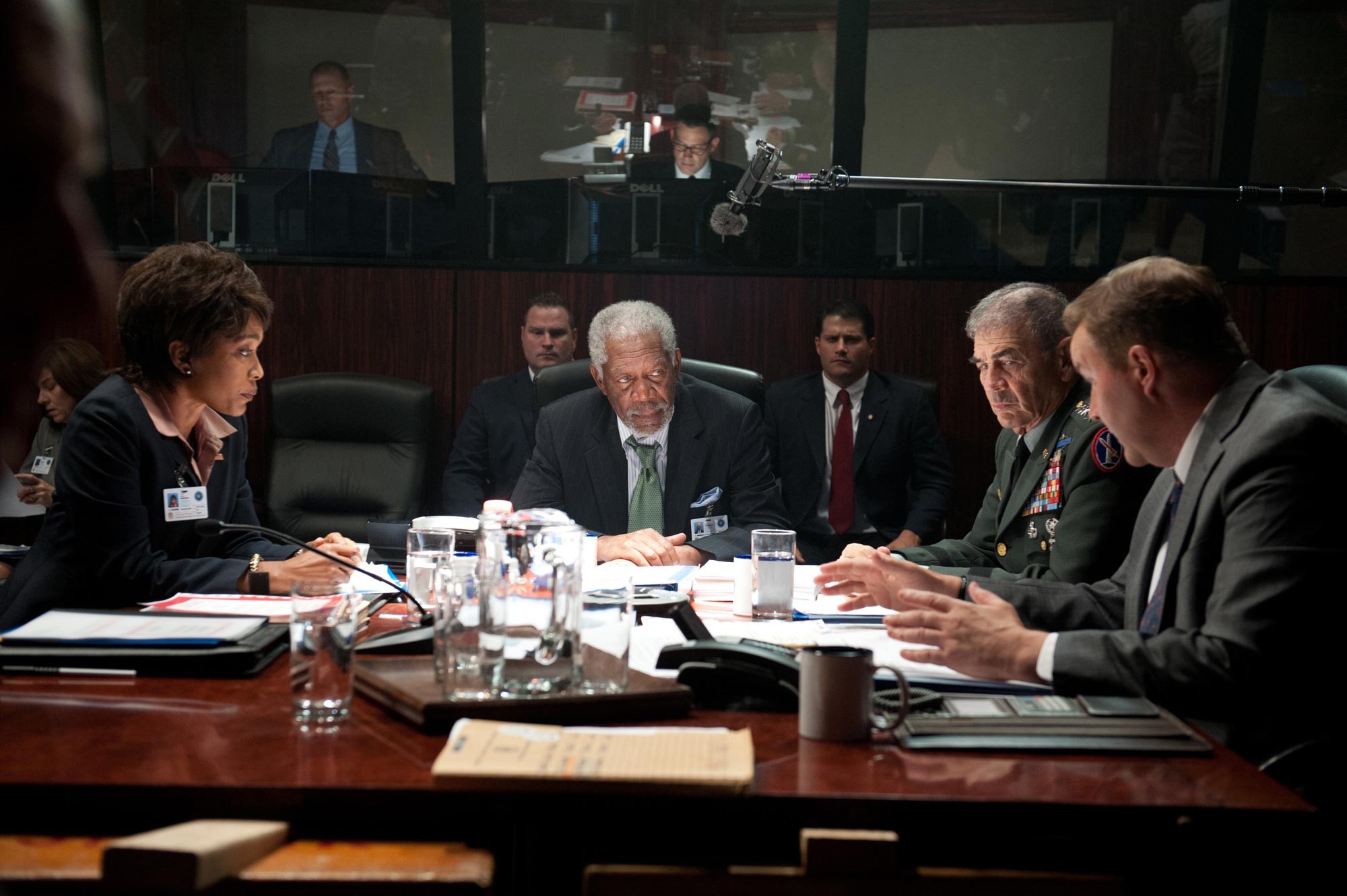The Reawakening Of Putin's Arctic Naval Force: A Geopolitical Assessment

Table of Contents
Military Infrastructure Development in the Arctic
The Kremlin's ambition in the Arctic is clearly reflected in its substantial investment in military infrastructure. This involves both the construction of new bases and the significant upgrade of existing ones, fundamentally altering the strategic landscape of the region.
New and Upgraded Bases: Russia is actively establishing and modernizing a network of Arctic military bases, significantly enhancing its capacity for surveillance, defense, and projection of power. This constitutes a crucial element of Putin's Arctic strategy.
- Nagurskoye: This base on Franz Josef Land boasts upgraded airfields, capable of handling advanced aircraft.
- Tiksi: Located in Siberia, Tiksi is being modernized to serve as a crucial port and logistics hub for the Northern Sea Route.
- Other locations: Numerous other bases and radar installations are being upgraded throughout the Arctic, improving Russia's surveillance capabilities and extending its reach. These improvements include enhanced port facilities, capable of handling larger vessels, and upgraded communication networks.
Enhanced Arctic Naval Capabilities: The modernization extends beyond base infrastructure to the vessels and equipment deployed. Russia is investing heavily in icebreakers, submarines, and coastal defense systems, specifically designed to operate effectively in the challenging Arctic environment. This reinforces its claim to Arctic sovereignty and its ability to control access to the region.
- Project 22220 icebreakers: These nuclear-powered giants are crucial for opening up new shipping routes and supporting military operations in ice-covered waters.
- Borei-class submarines: These nuclear-powered ballistic missile submarines provide a potent deterrent and demonstrate Russia's capacity for strategic projection in the Arctic.
- Coastal defense systems: The deployment of advanced coastal defense systems enhances Russia's capacity to control access to its Arctic coastline and deter potential incursions.
Geopolitical Implications of Russia's Arctic Strategy
Russia's assertive Arctic policy has far-reaching geopolitical ramifications, impacting resource control, shipping routes, and the relationship with other Arctic nations and NATO.
Resource Control and Exploitation: The Arctic holds vast reserves of oil, gas, and minerals. Russia's Arctic military buildup is inextricably linked to its ambition to control and exploit these resources, securing its energy independence and bolstering its global economic power.
- Economic benefits: Control over Arctic resources offers Russia substantial economic benefits and strengthens its position in global energy markets.
- Potential conflicts: This ambition may lead to conflict with other Arctic nations, especially concerning resource-rich areas and the delineation of maritime boundaries.
Northern Sea Route Development: Russia views the Northern Sea Route (NSR) as a vital component of its Arctic strategy. The development of this shorter shipping route between Europe and Asia offers significant economic and geopolitical advantages.
- Economic advantages: A viable NSR would drastically reduce shipping times and costs, boosting Russia's trade and economic influence.
- Geopolitical advantages: Controlling the NSR would grant Russia considerable influence over global trade and shipping lanes, enhancing its geopolitical leverage.
Challenges to NATO and Allied Interests: The strengthening of Putin's Arctic Naval Force poses a significant challenge to NATO and other Arctic nations, raising concerns about regional security and power dynamics.
- Security risks: The increased Russian military presence in the Arctic presents a potential security risk to NATO members and other Arctic nations, requiring increased defense spending and enhanced surveillance.
- Responses of other Arctic nations: Other Arctic states are responding to this challenge by increasing their own military presence and enhancing international cooperation to counter Russia's growing influence.
Conclusion:
The reawakening of Putin's Arctic Naval Force signifies a significant shift in the geopolitical landscape of the Arctic. The expansion of military infrastructure, the enhancement of naval capabilities, and the pursuit of resource control and the development of the Northern Sea Route are all integral parts of a broader strategy aimed at solidifying Russia's dominance in the region. This assertive approach poses challenges to NATO and other Arctic nations, necessitating closer cooperation and vigilance. To understand the full implications of this evolving situation, further research into Russia's Arctic military presence and its evolving role in global geopolitics is crucial. Resources such as reports from think tanks focusing on Arctic security and analyses from international organizations will provide further insights into the complexities of Russia's Arctic ambitions and the future of the Arctic naval race.

Featured Posts
-
 Aces Face Roster Crunch Undrafted Players Impact
May 13, 2025
Aces Face Roster Crunch Undrafted Players Impact
May 13, 2025 -
 Extreme Heat Warning Paso Robles Under Heat Advisory
May 13, 2025
Extreme Heat Warning Paso Robles Under Heat Advisory
May 13, 2025 -
 Madridskiy Turnir Sobolenko V Tsentre Skandala
May 13, 2025
Madridskiy Turnir Sobolenko V Tsentre Skandala
May 13, 2025 -
 Kino Na Sluzhbe Otechestvu Programma I Luchshie Momenty Festivalya V Moskve
May 13, 2025
Kino Na Sluzhbe Otechestvu Programma I Luchshie Momenty Festivalya V Moskve
May 13, 2025 -
 Olympus Has Fallen A Critical Review Of The Action Thriller
May 13, 2025
Olympus Has Fallen A Critical Review Of The Action Thriller
May 13, 2025
